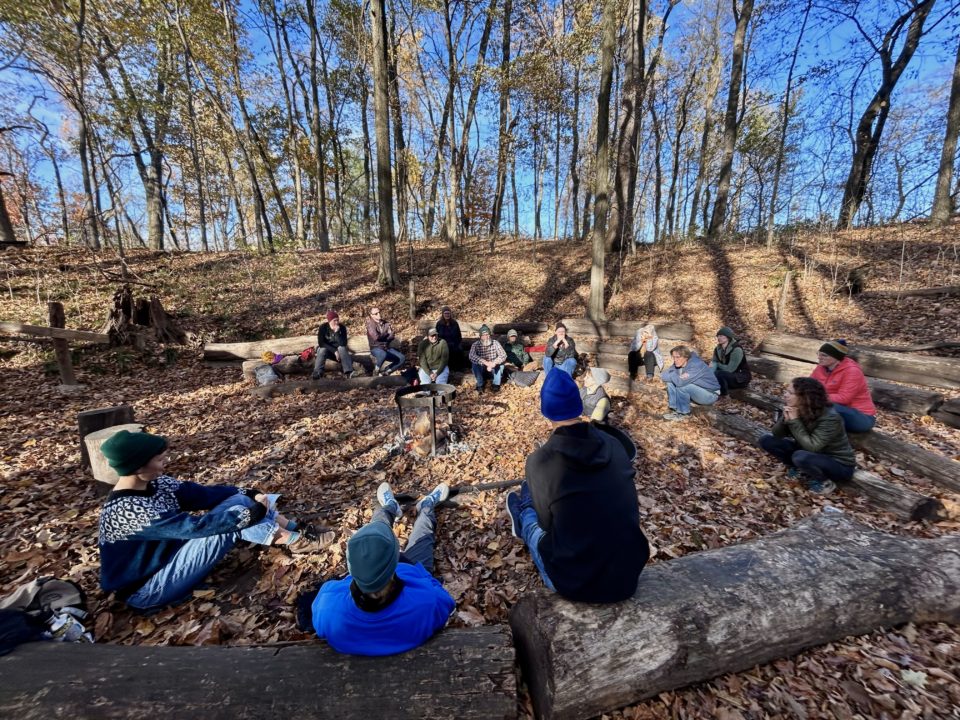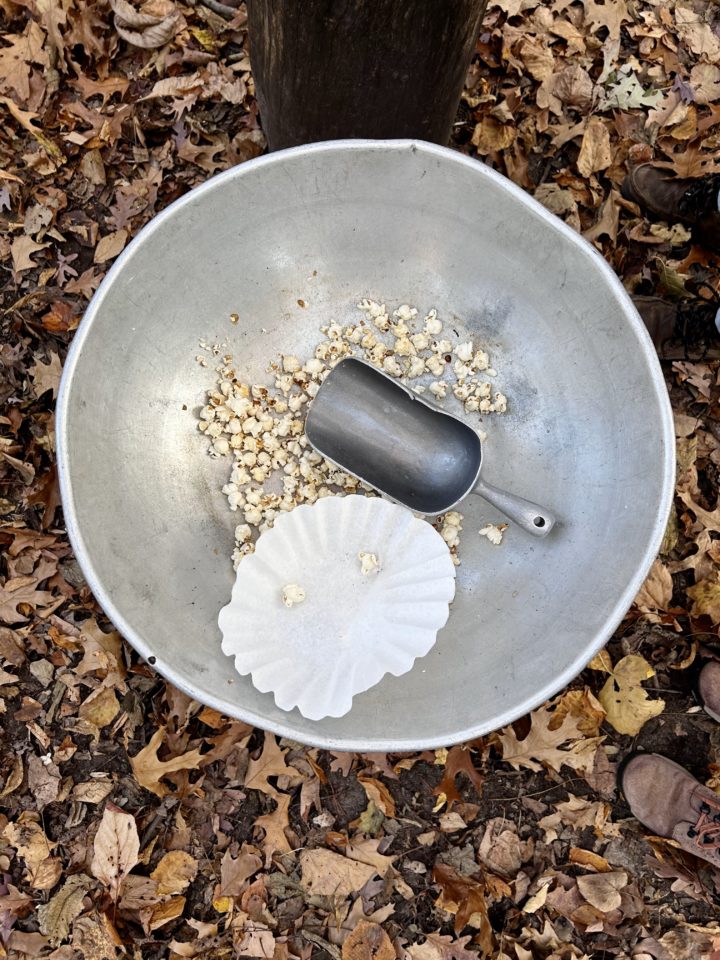This piece first appeared in Anabaptist World and can be found by clicking here and is co-authored by Jenna Liechty Martin, executive director of Camp Friedenswald and Annabeth Roeschley, executive director of the Brethren Mennonite Council for LGBT Interests and (former Friedenswald summer staff).
In the late 1990s and early 2000s, the Brethren Mennonite Council for LGBT Interests hosted its annual retreat for young adults at Camp Friedenswald in Michigan. In 2005, the camp barred BMC from hosting Queer Camp on its grounds in response to increased backlash to queer visibility throughout the church. Concerned people across BMC and Central District Conference of Mennonite Church USA spoke out against this decision. Mutual interest in mediation was stated but never occurred.
This is not a linear story. Repair is not linear work.

On a bright and chilly afternoon in November, 17 members of the Brethren Mennonite Council for LGBT Interests and Camp Friedenswald gathered for a ritual of repair. Our group included current and former members of our boards and staff, some of whom were involved in the organizations in 2005, along with invited leaders from Central District Conference.
The gathering embodied reparative efforts the camp and BMC began nearly two years ago. In January 2024, a group of BMC and camp leaders spent time seeking a better understanding of what happened in 2005 and thereafter. We wanted to tell a fuller, more truthful story. Reviewing old emails, minutes, news clippings and articles from this era was painful and illuminating. Some letters were hard to read. We built a digital archive for this work of holy reckoning.
Our small group wondered where this truth-telling would take us. What was being asked of us today, nearly 20 years later, especially as leaders who were not in charge then? We felt uncertain and, at times, confused about our next steps. Yet we sensed a sacred rightness. We decided to gather in person at Friedenswald for a storytelling ritual to mark our journey toward repair. We trusted it would be good enough.
Those we invited for the ritual held varying connections to the damage that occurred in 2005. Some had been directly involved and impacted, others less so. Several joined as participatory witnesses. We invited a local queer Mennonite facilitator to help us. BMC participants spent the weekend on retreat in the woods, as Friedenswald extended reparative hospitality.
We met at the bell in the heart of the camp and walked together up the hill and down to Mosquito Hollow. Our walking was ritual. Thanking the land, trees and water and welcoming our ancestors was ritual. Feeding the fire with sticks and leaves and old Queer Camp brochures was ritual. Popping popcorn and passing the bowl around the circle was ritual.
Our storytelling was ritual. Each voice added their piece: If we were telling this story to grandchildren seven generations from now, what would we want them to know? We spoke difficult and painful truths. We grieved, quietly and aloud. We referenced letters from 2005, speaking the names and stories we carry. We recognized the cost of what was lost. While we focused on this one instance of harm and its impacts, we held it as a microcosm of the broader church.
We honored the presence and advocacy of BMC over nearly 50 years, empowering communities like Friedenswald to now host, hire and publicly affirm LGBTQ+ people. We drew in the potent metaphor of the recently re-meandered Dowagiac River near the camp, an initiative of the Pokagon Band of Potawatomi to literally un-straighten their waterway for ecological restoration. Our own re-meandered story now claims BMC’s integrity and the agency of LGBTQ+ people in its retelling. Re- meandering this narrative is repair.
The late fall leaves rustled in the breeze. Laughter bubbled up. We honored the gifts of queerness in the land and place. We welcomed silence and let the fire speak. What feels more possible because of our reparative efforts? How will we carry this forth?
As we departed the hollow, some lingered, basking in the glow of what we had created and the spirit greater than ourselves at work among us. BMC folks collected ashes from the fire for future rituals of queer healing and flourishing.
While BMC’s and Friedenswald’s story of repair is particular to our context, what happened in 2005 wasn’t unique. The injury of LGBTQ+ exclusion and condemnation occurred in many times and places in Mennonite Church USA and other denominations. What is unique is an opportunity to practice organizational repair 20 years later.
We reflected on what made this possible: a foundation of trusted relationships; a letter of unconditional apology from Friedenswald to BMC in 2023, preceded by the camp’s internal and external work toward LGBTQ+ inclusion; and BMC’s willingness to take part in reparative healing. While there are multiple ways to engage this history, we committed to engage it in a way that affirms queer and trans people. This commitment is the basis for the stories we tell.
We wonder how our organizations might continue this experiment in repair. We are grateful for a widening circle to hold and tell this story with us. Our reparative process doesn’t absolve all the harm done to LGBTQ+ people or the church’s moral injury. But it may be a fractal of healing that ripples out as MC USA lives into repentance and transformation. With despair pressing upon our world in so many ways, may this act of repair be a balm of possibility.
